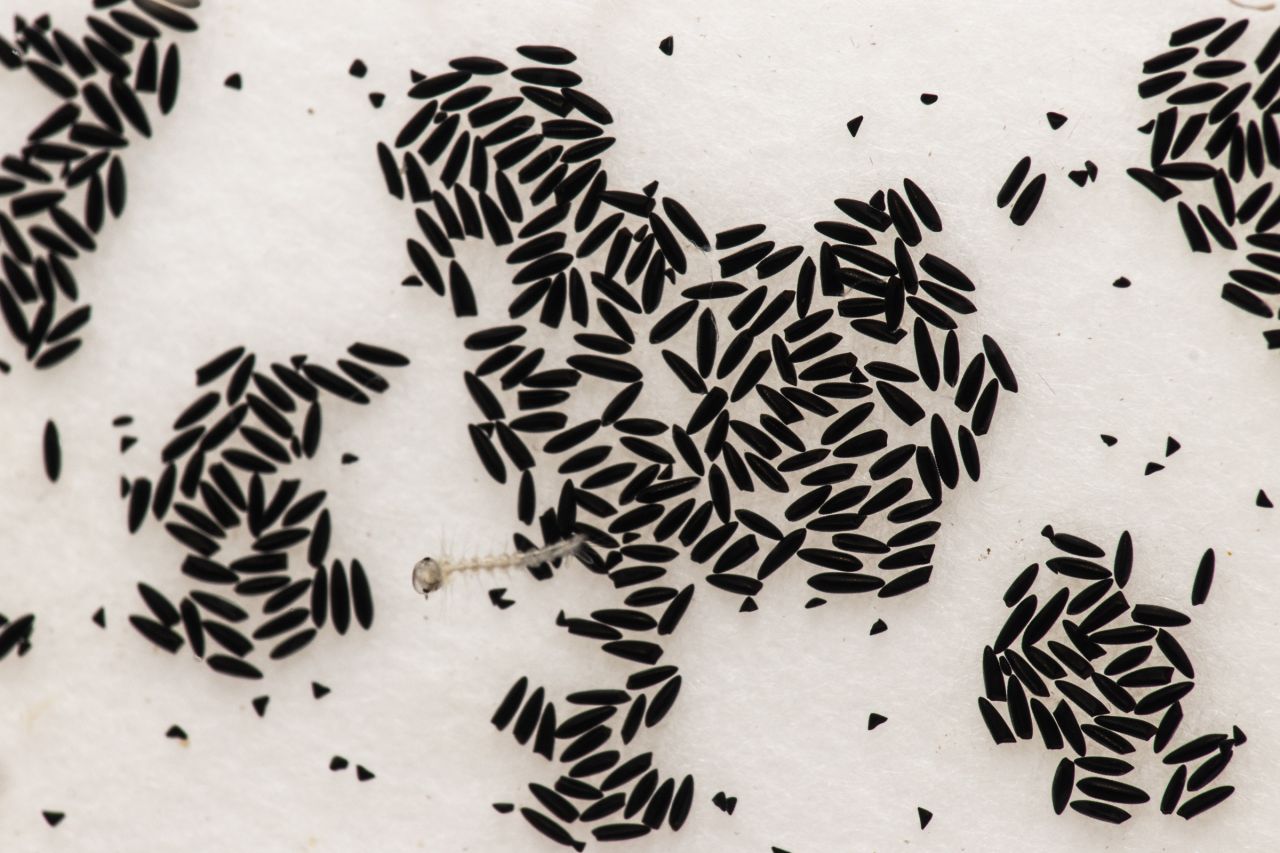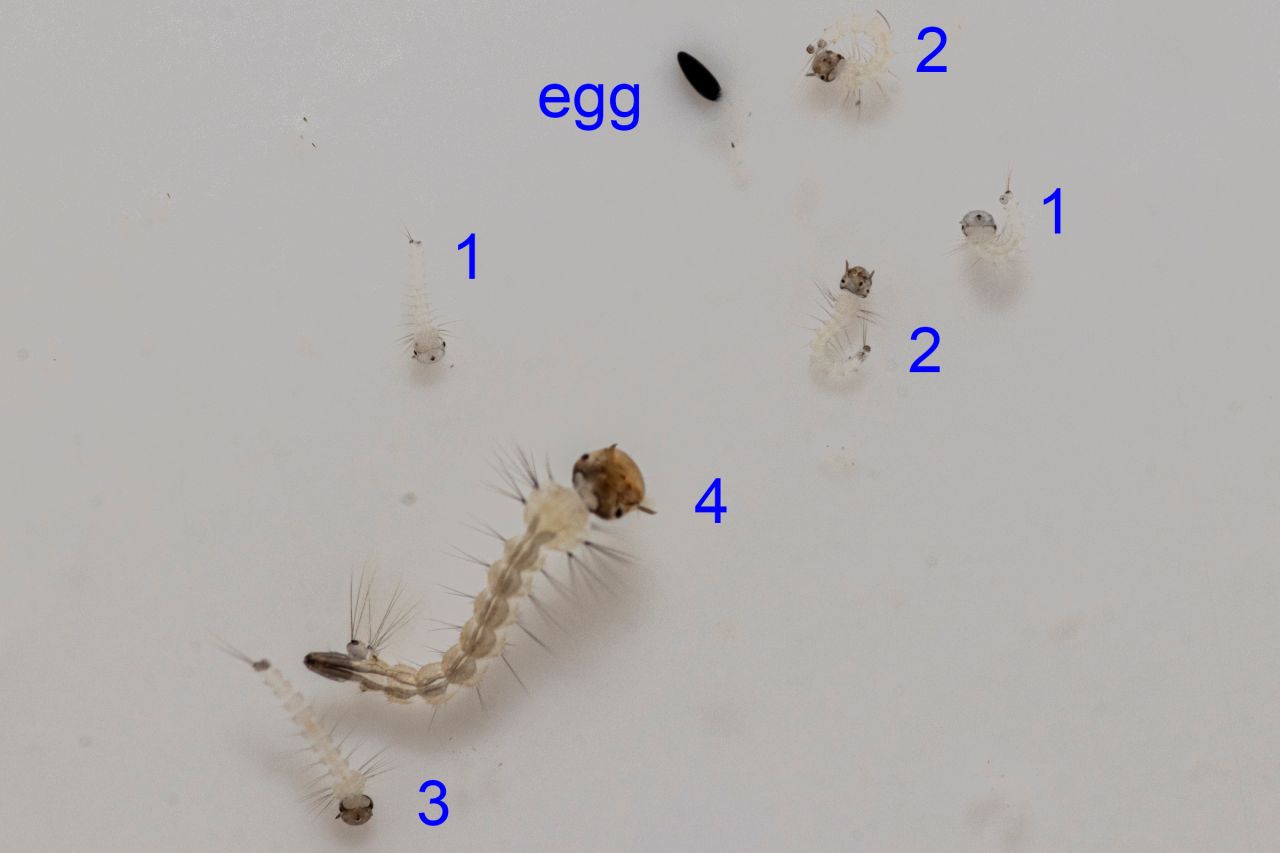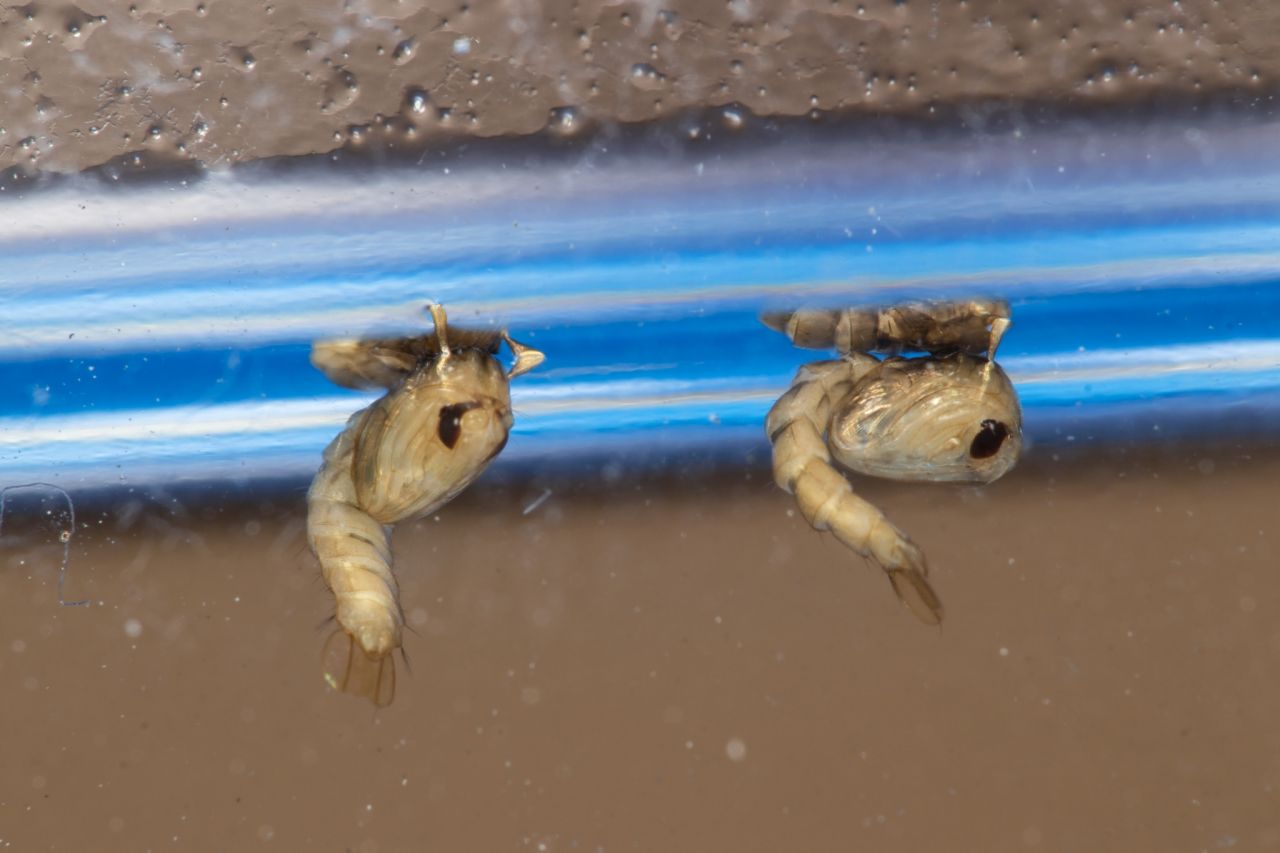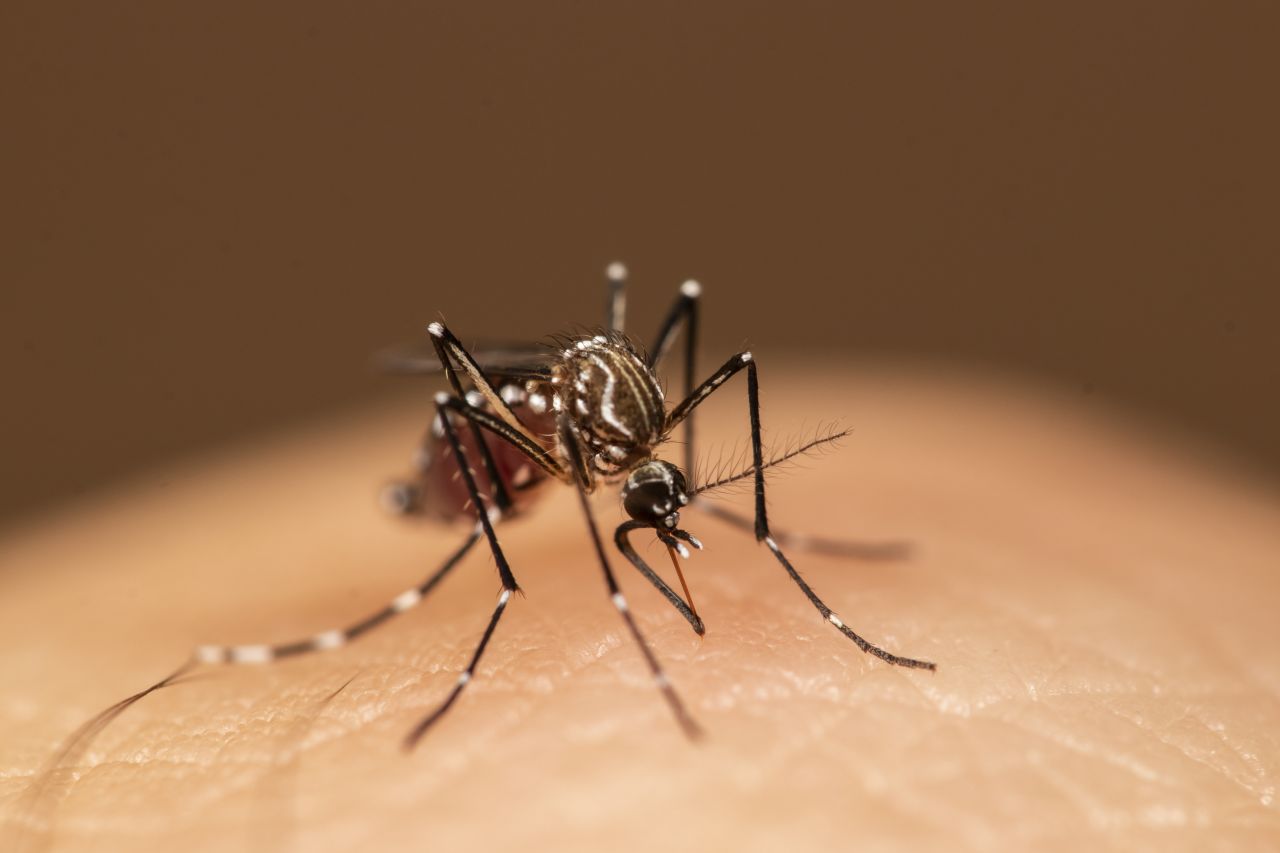Bloody-minded mosquitoes
Have you ever been bitten by a mosquito? Maybe during a walk in the forest, or sitting by the lake? Or on holiday, when they come out in their hundreds at night? They leave us with red, itchy welts and sometimes they can also spread diseases.

Image: © Martin Breu
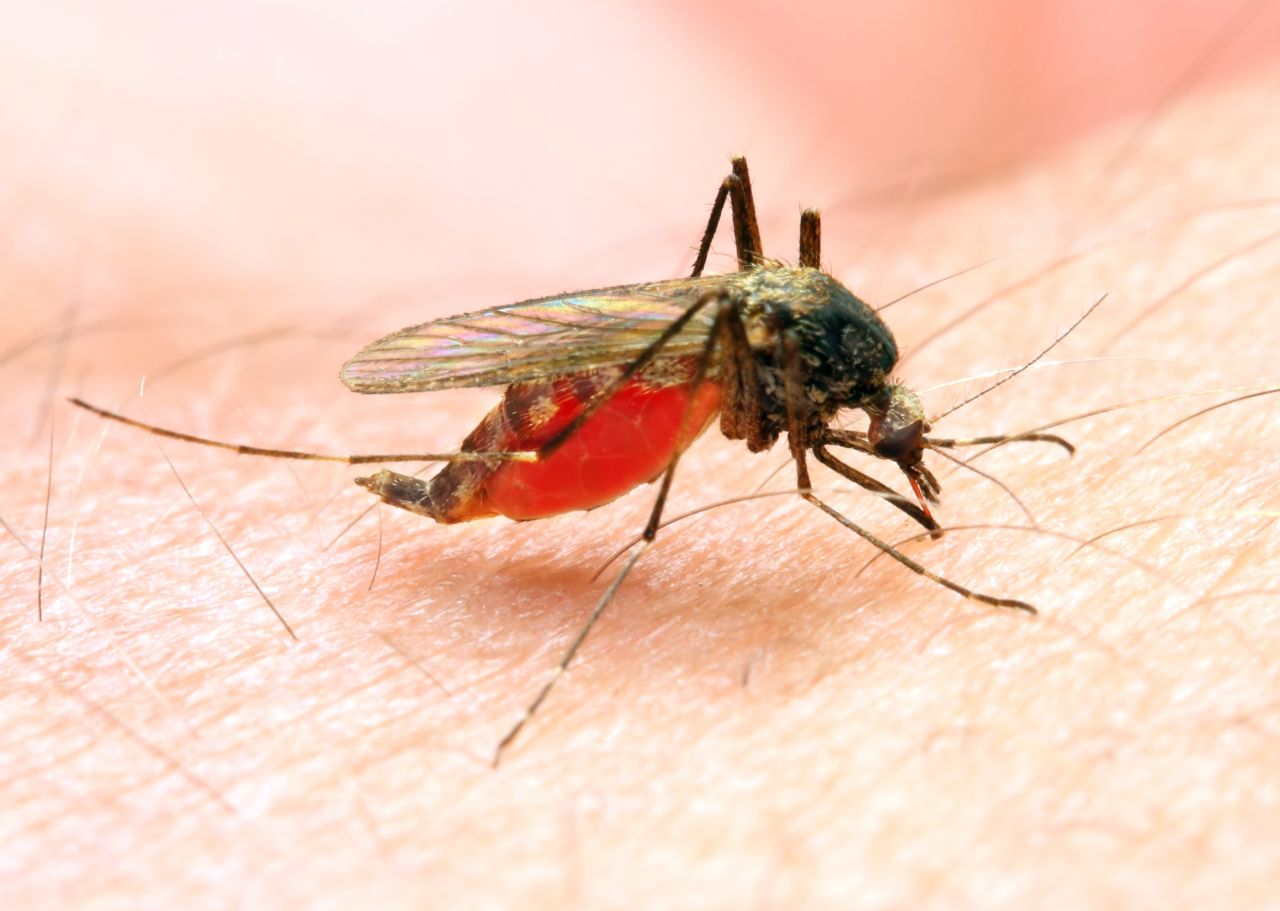
Female mosquitos feed on our blood to develop viable eggs, but the bite may prove harmful to humans. Image: Adobe Stock
Mosquito diversity
- There are approximately 3 500 mosquito species worldwide.
- Only 10% of these species bite humans, and for many of them humans are not the first choice – they might find cows or guinea pigs or lizards much tastier (this can lead to animal to human transmission of diseases, like the transmission of West Nile virus from birds to humans.
- Mosquitoes are adapting to human environments – there is even a species that is famous for evolving to live in the London Underground!
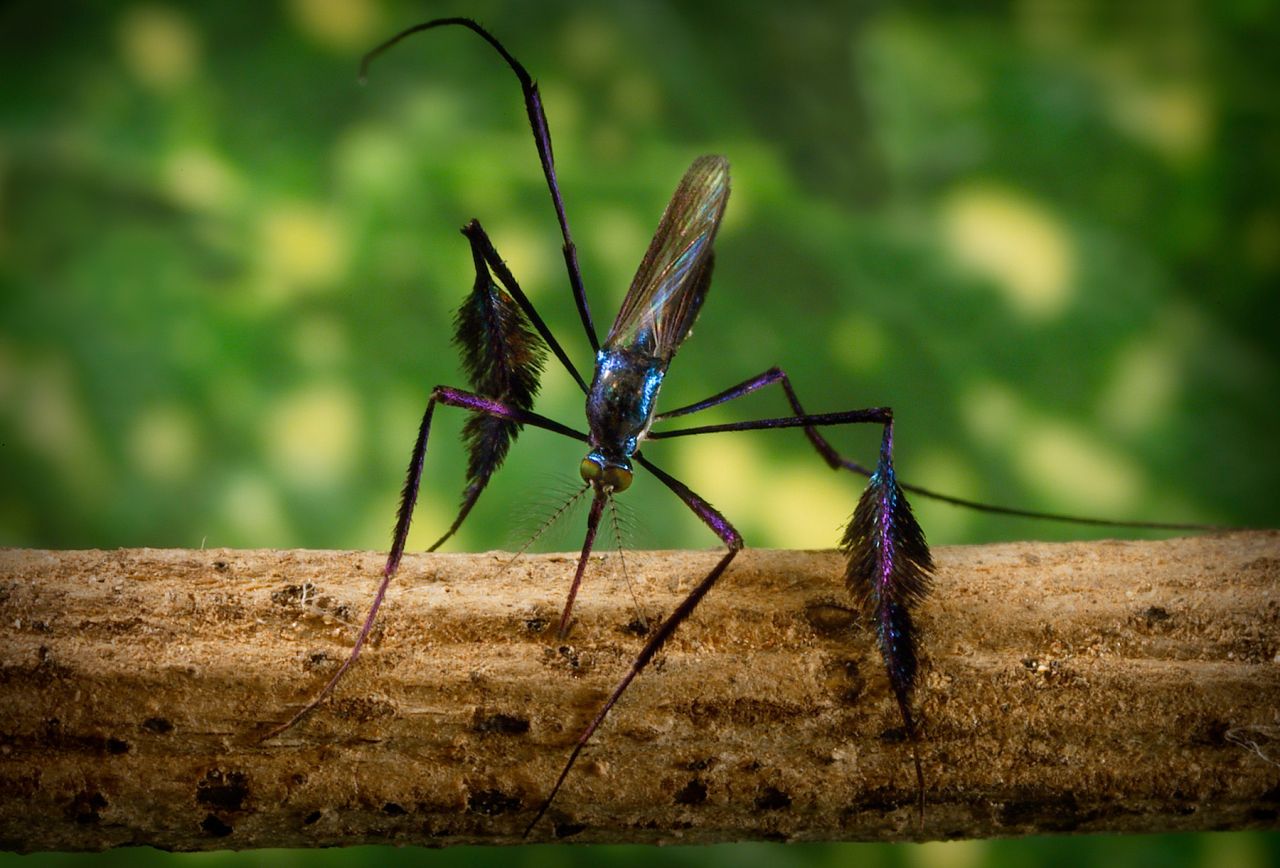
Sabethes cyaneus, an inhabitant of the Panamanian forest canopy, is a beautiful representative of the mosquito family. Image: Wikimedia Commons/CDC/ Prof. Woodbridge Foster; Prof. Frank H. Collins
Do all mosquitoes bite?
No! It’s only female mosquitoes that bite, and they do it to get proteins and amino acids so that viable eggs are developed. The rest of the time, they feed on nectar from flowers and plant sap; the males do that all the time and never try to bite people. And for some species, like the elephant mosquito, even the females never need to bite because as larvae they predate on other small creatures in the water and store all the nutrients they will need to successfully reproduce.
To view this content, you must accept marketing and third-party cookies.
Vectors of disease
Almost everyone hates mosquitoes, although in Switzerland they are mostly just an annoyance. In other countries, they can spread diseases: for example, Anopheles gambiae transmits malaria, Aedes albopictus (the tiger mosquito) and Aedes aegypti transmit dengue fever, yellow fever, zika and chikungunya, and Culex pipiens transmit West Nile fever.
However, mosquitoes aren’t born carrying diseases. When they first become adults, emerging from their pupae, their bites are harmless (unless you are unlucky enough to be allergic). But if they bite someone who already has a disease, like malaria or zika, then the pathogens (parasites or viruses) causing that disease pass into the mosquito gut with the blood and might infect the mosquito (which isn’t healthy for the mosquito either!). Not every disease can infect every mosquito. A pathogen must have evolved to be able to complete its life cycle inside a mosquito species and to evade the immune system, finishing by traveling to the mosquito’s mouthparts, from where it can be injected into the next people the mosquito bites. The spread of diseases can have a big impact on human population sizes and economic growth.
Fun fact
To be able to transmit a disease, mosquitoes have to live to an old age (which is only a couple of weeks when you’re a mosquito), because it takes a week or longer for the pathogen to develop inside them before it can be passed on. That means that it’s the Granny mosquitoes, not the young ones, who spread diseases. And it’s tough to make it to that age when you are a mosquito because everyone is out to get you!
Did you know?
We used to have malaria almost everywhere in Europe. Extensive draining of the wetlands where mosquitoes breed, and aggressive use of insecticides, means that we got rid of malaria in the mid-20th century. However, since 2003, malaria has re-emerged in Europe and reports suggest that not all of the cases are linked to traveling. Therefore, it is essential to track malaria cases and the populations of Anopheles mosquitoes across Europe.
What are mosquitoes good for?
You might wonder why we don’t just get rid of all the mosquitoes. Maybe not all of the thousands of species, but at least the ones that bite humans. The truth is that mosquitoes have important roles to play in the ecosystem. They are part of the food web – adult mosquitoes are a major food source for birds and bats that catch them in the air. The larval stages in ponds and streams are eaten by fish and dragonfly larvae. Without mosquitoes, the species that rely on them for food may starve or compensate by feeding more on other species, which would affect their populations, too. The potential impact of a species going extinct is always a big unknown.
Mosquitoes also pollinate plants when they drink nectar. In fact, some orchid species such as blunt-leaved orchids are only pollinated by mosquitoes and would go extinct if these species of mosquitoes died out. Orchids that are pollinated by mosquitoes emit a specific smell to attract them.
Aedes communis mosquito visiting and pollinating P. obtusata flowers. Video: PNAS, CC License
Did you know?
Not only mosquitoes like blood. Midges, their tiny cousins, do, too. Read about them in our article Biting midges – An emerging threat for Swiss farm animals.
References
Benjamin Elisha Sawe 2017. What is the London Underground Mosquito? WorldAtlas. https://www.worldatlas.com/articles/what-is-the-london-underground-mosquito.html Accessed 9.2.2024
World Health Organization 2017. West Nile virus. https://www.who.int/news-room/fact-sheets/detail/west-nile-virus Accessed 9.2.2024
World Health Organization 2023. Malaria. https://www.who.int/news-room/fact-sheets/detail/malaria Accessed 9.2.2024
World Health Organization 2023. Dengue and severe dengue. https://www.who.int/news-room/fact-sheets/detail/dengue-and-severe-dengue Accessed 9.2.2024
World Health Organization 2023. Yellow fever. https://www.who.int/news-room/fact-sheets/detail/yellow-fever Accessed 9.2.2024
World Health Organization 2022. Zika virus. https://www.who.int/news-room/fact-sheets/detail/zika-virus Accessed 9.2.2024
World Health Organization 2022. Chikungunya. https://www.who.int/news-room/fact-sheets/detail/chikungunya Accessed 9.2.2024
European Climate and Health Observatory. Malaria. https://climate-adapt.eea.europa.eu/en/observatory/evidence/health-effects/vector-borne-diseases/malaria-factsheet#:~:text=Malaria%20was%20successfully%20eliminated%20from,et%20al.%2C%202021) Accessed 25.3.2024
Peach DAH 2019. The Ecological Importance of Mosquitoes. The Wire. https://thewire.in/environment/the-ecological-importance-of-mosquitoes Accessed 9.2.2024
Urton J & Daniels K 2020. Mosquitoes are drawn to flowers as much as people - and now scientists know why. Virginia Tech. https://vtx.vt.edu/articles/2020/01/FLSI-lahondere-vinauger-mosquitoes-orchid.html Accessed 9.2.2024
